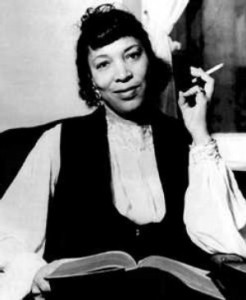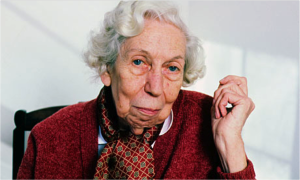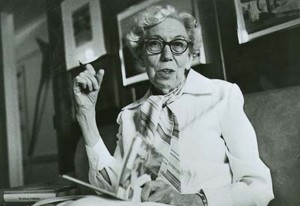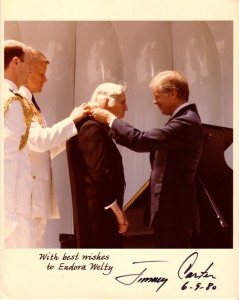Zora Neale Hurston
With a career spanning over thirty years, Zora Neale Hurston has oftentimes been regarded as the “most successful and most significant black woman writer of the first half of the 20th century.” Such an illustrious title has not gone unearned, though. Hurston’s first work was published in 1921 in Howard University’s literary magazine, and in 1925, she gained national recognition when two of her works won second-place awards by the New York magazine Opportunity‘s literary contest. One of these works, the short story “Spunk,” was published in June of that year, and Hurston’s career moved to New York, where she got involved in the New Negro/Harlem Renaissance movement. It was in New York that Hurston discovered a love for anthropology while under the mentorship of famous Anthropologist Franz Boas. In particular, Hurston took a great interest in folklore, which became the fuel by which her later works were ignited. Hurston’s most famous works are centered around folklore, namely Mules and Men, Tell My Horse, and Their Eyes Were Watching God, which is actually considered her masterwork. However, it was not until after her autobiography entitled Dust Tracks on a Road was published in 1942 that she received the acclaim she deserved, like the Anisfield-Wolf Book Award in Race Relations and the Distinguished Alumni Award from Howard University.
Despite Hurston’s impressive literary works, valuable contribution to the field of Anthropology, and her push for the national recognition of black writers and artists, she saw very little financial rewards. In fact, when she passed away in 1960 at the age of 69, her neighbors had to actually take up collections for her funeral, which still did not raise enough for a headstone to be put on her grave. It wasn’t until 1973 that her grave was properly marked. A young writer who was greatly inspired by Hurston’s life and works, Alice Walker, was the one who found Hurston’s unmarked grave and ensured that a headstone would be placed on it. Then, in 1975, Walker published “In Search of Zora Neale Hurston,” which brought about a “Hurston revival.” Appropriately so, too.




